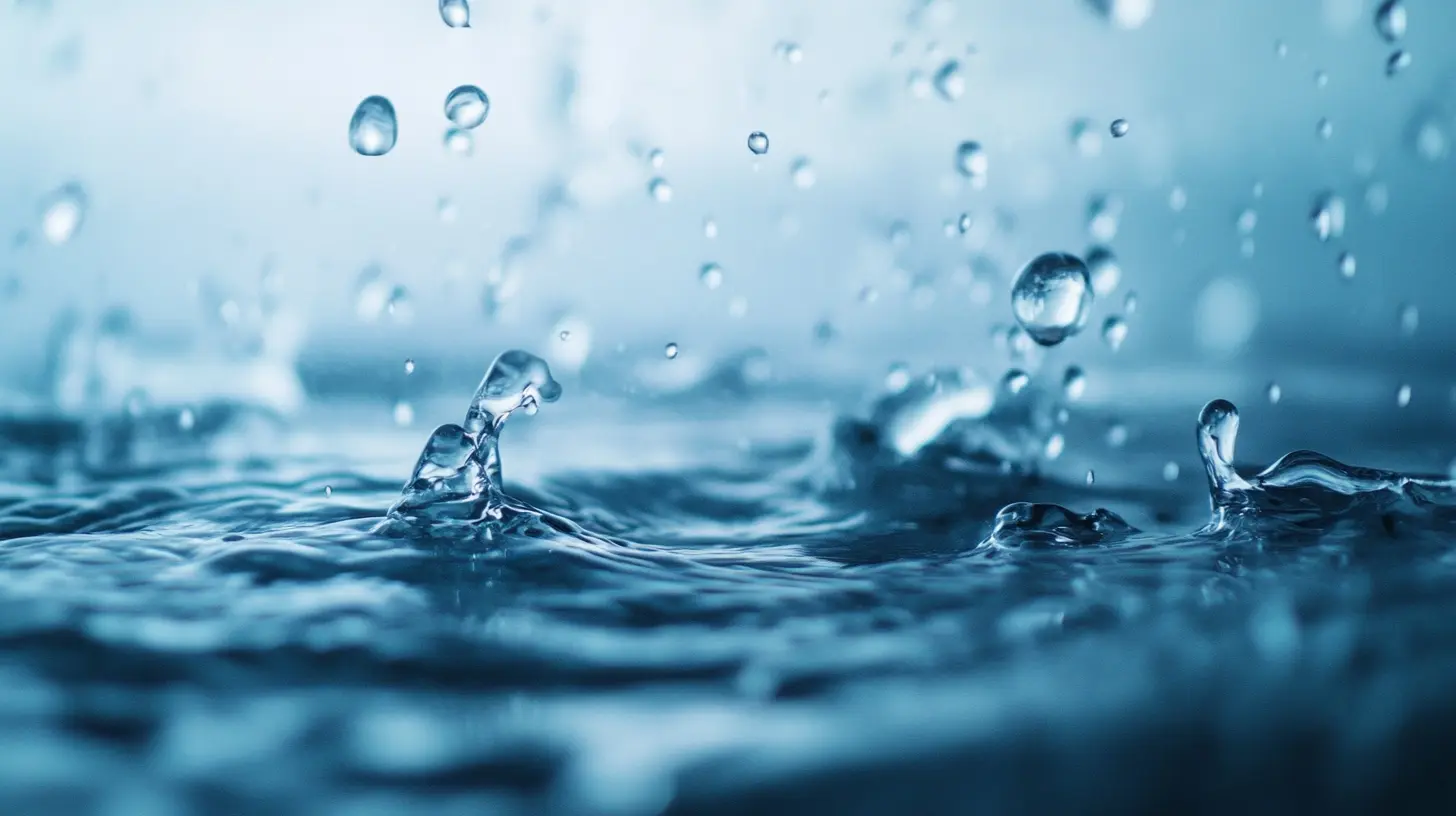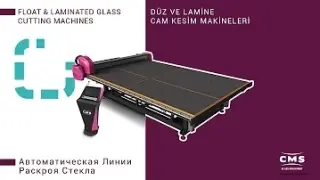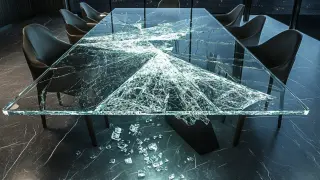In this fast-changing world of manufacturing, the CNC Glass Groove Milling Machine will soon prove itself to be an important tool for efficiency and accuracy in glass processing. Global glass processing machinery is further expected to ascend the ladder with USD 12.1 billion worth by the year 2026 with a CAGR of 5.3% between 2021 and 2026. The adoption of advanced technology is growing among manufacturers because of competition. The most striking trend is in the sectors of architecture, automotive, and decorative glass, where increasingly sophisticated glass designs and customizations are required.
At Shandong Eworld Machine Co., Ltd, we understand the importance that world-class machinery will play in fulfilling these needs. Since our inception in 2014, we have strictly dedicated our resources to the development and supply of different kinds of automatic glass machines. Indirectly coupled with the CNC Glass Groove Milling Machine, the automatic glass machines make glass manufacturing processes more flexible and efficient. With the automatic-precision-engineering combination, now we empower the manufacturers to achieve higher product quality with reduced operational costs, which still paves the way for innovations in the glass industry.

The Evolution of CNC Technology in Glass Processing
CNC (Computer Numerical Control) technology has changed the dynamics of various manufacturing processes, specifically glass processing. Glass shaping and engraving methods had traditionally been manual and often less precisely performed, leading to a significant amount of inefficiency and inconsistency in the finished products. The CNC technology allows the manufacturer to use machines that automate complex tasks and offer precision and speed in a way that was virtually impossible before. CNC glass groove milling machines are the most advanced expression of this technology. The machines leverage the advanced integration of software and hardware to execute intricate designs that were once thought impossible. The programmability of fine specifications allows manufacturers to quickly turn out custom glass products without sacrificing high quality and precision. Thus companies can satisfy a wide range of client requests, from architectural installations to bespoke decorative items. Moreover, CNC technology has the advantage of scaling: manufacturers are able to modify their production volumes easily without investing in more manpower or machinery. As demand changes, the machines effortlessly switch from one set of tasks to another, thus becoming key players in the fast-paced competition. With the associated growth in CNC technology, thus novel solutions continue to be encountered for glass processing as a result of staying ahead in manufacturing.

Key Benefits of CNC Glass Groove Milling Machines for Manufacturers
For the manufacturers in the glass processing industry, CNC glass groove milling machines are gaining prominence. The MarketsandMarkets report estimated that the CNC machine market worldwide would cross $117.72 billion by 2025. This is primarily due to increases in demand for precision and efficiency levels in the manufacturing process. More importantly, on that account, glass groove milling machines provide precision and speed capabilities that minimize the overall production time and wastage of materials, again an important factor in very competitive environments.
Encouraging one of their best features is complex grooves and profiles with incredible precision. Tolerances of ±0.01mm are fairly standard; therefore, CNC glass groove milling machines greatly minimize manual adjustment and further machining processes. This will streamline production and, thereby, allow better quality performance, increasing customer satisfaction. In the same breath, through automation, CNC machining helps the manufacturers plan their use of resources and keeps their labor costs down, thereby improving their profit margins.
CNC glass groove milling machines are engineers' tools reputed for versatility that provides manufacturers the power to work on various types of glass- tempered or laminated. This versatility is a necessity, as customized glass design becomes more and more of a demand. TechNavio's study predicts that the glass processing machinery market would expand at a CAGR of over 5% through 2024, which highlights the prominent role CNC technology will play in fulfilling changing industry standards and consumer preferences. The fusion of these sophisticated machines increases productivity while placing manufacturers in a position to retain supremacy in a fast-evolving territory.

Industry Applications: Where CNC Glass Milling Technology Excels
CNC glass milling technology has become the cornerstone of innovation among countless applications across industries. One of its prime applications is precision glass manufacturing for automotive, aerospace, and electronic component manufacturing. With manufacturers increasingly turning towards the CNC glass groove milling machine to manufacture complex geometries due to demand for intricate designs and high tolerances, they will no longer be able to achieve them with conventional methods. Furthermore, the use of a groove milling technique by which grooves can be milled to a very small tolerance will most certainly improve product quality with reduction in wastage materials, a point today in an environmentally conscious manufacturing era.
Technologically, CNC systems become more potent. Newly made electric dual-wheel milling machine, for example, slots up to 125 meters deep-the depth alone indicates the extent of CNC use beyond glass. Such trend trends, of course, indicate the evolving route focused by manufacturers: from high production efficiency to automated and intelligent manufacturing. Thus, CNC machining markets including precision segments like glass milling are anticipated to achieve significant growth in years to come because of demands for automation in processes with regards to productivity increase and operational cost reduction.
Additionally, the entire machining process is optimized with the inclusion of artificial intelligence in CNC activities. AI systems are finding application in predicting failures and runtime adjustments to machined parameters for quality improvement in machining. This is particularly useful for complex milling operations as in glass manufacturing, where a very small variation can cause large defects. The cycle initiated with the acceptance of these developments will transform the CNC glass milling industry casting new standards in manufacturing and defining new horizons in precision engineering.

The Precision Edge: How CNC Machines Redefine Glass Grooving
CNC Machines Re-examine the Glass Re-grooving with the Precision Edge Introduction
This wave of technology revolutionizes the manufacturing and will be making waves in different industries. Glass processing accepts this revolution as an example. But above all this, glass grooving is very important, because it can compromise or distort even minor defects during final production. As revealed in a report by Grand View Research, the CNC machine market is expected to reach $100 billion by 2025, growing at a CAGR of 6.4% since 2019. This growth is spurred by the increasing demand for precision machining in several sectors like architecture, automotive, electronics, etc. Glass components prevail in these sectors.
CNC machines for glass groove milling have their facility to make most sophisticated cuts and grooves in glass with precision and repeatability. This gives manufacturers the ability to hold tolerances such as ±0.01 mm, drastically enhancing the quality of their products. According to Research and Markets, the rise in decorative glass applications such as interior design and furniture has led to the growing demand for good machining processes. This also allows CNC machines to overcome the complexity of the designs and finally automate the production process, which leads to reduced labor costs while maximizing efficiency, thus, minimizes human errors.
CNC machines for integrating glass grooving have brought Industry 4.0 principles within reach. Because these machines can work well with design software and other systems, they lend themselves to easy integration into automated workflows with agility in production. Manufacturers also ensure that further continuous optimization is possible by real-time monitoring and adjustments. It also fulfills the emerging requirement of future customers looking for particularities in the product and also meets those sustainable goals through minimizing waste and energy, all of which are why today's companies see CNC glass groove milling machines as being incorporated into their work.
Cost Efficiency: Investing in CNC for Long-Term Savings
The investment in CNC glass groove milling machines has become a great paradigm shift for manufacturers desirous of cost-efficiency. Such machines streamline operations not just through labor cost savings, but in speeding up production and accuracy. For one, traditional glass milling processes are often labor-intensive, if not filled with human errors that bring in even more expenses and wasted materials. Here, CNC technology gives the automatic machining process that promises uninterrupted quality and precision while reducing spoilage of material. This precision not only promises material savings but also minimizes the frequency of rework or product defects.
Moreover, CNC glass milling machines save costs in the long term beyond their operating costs. They are very durable and, compared to conventional milling machines, require less frequent repairs. Manufacturers will be able to use CNC technology to ensure uninterrupted production flow, enhancing output and profit margins. Furthermore, in line with greater demand for customized glass products, CNC machines provide the flexibility to respond to market changes without incurring significant downtimes or investments in new equipment. By investing in CNC machinery, companies can strategically position themselves in the highly competitive market, thus saving costs and improving their value-adding efficiency.
Safety Innovations: Enhancements in Glass Milling Technology
Safety-driven innovations in glass milling technology are causing substantial changes in the manufacturing industry. With the entrance of CNC glass groove milling machines, manufacturers are now more concerned with safety in production. Today, these machines come embedded with advanced safety features that will help reduce the chances of accidents and injuries on the shop floor. Better designs of enclosures, emergency stopping systems, and ventilation systems will allow safe working conditions for operators while mitigating hazards in controlled glass operation.
One such very innovative design concept is the automated shut-off system: in the event of a possible malfunction or safety breach, this system detects the threat and signals the machine to stop, reducing the maintenance expense and any further danger by stopping the machine immediately. Advanced sensing technology is also being installed to monitor the functioning of the machine and will enable an operator to shut it down if anything abnormal is detected while the machine is in operation. Such proactive measures save not just the workers but also reduce downtime from accidents, thereby enhancing overall productivity.
In parallel, manufacturers are now putting in place enhanced training programs concerning ensuring that CNC glass groove milling machines are operated with safety in mind. Application of VR simulations and AR training tools is now widespread, immersing employees into experiences that clarify safety procedures. By developing a safety culture through education and the latest in technology, companies are protecting their workforce and meeting relevant regulations and standards.
Future Trends: The Next Generation of CNC Glass Milling Machines
In our discussion above, the evolution of CNC glass milling machines is poised to open newer doors for manufacturers, especially in precision and efficiency. Looking into the future, the next generation of such machines would be very significant for the integration of sophisticated technologies, such as AI and IoT, that would not only enhance manufacturing processes but also improve operation intelligence in real-time monitoring and adjustment systems for overall production quality.
Besides, the next-generation CNC machines will perfectly suit present-day industrial movements toward sustainability and efficient use of resources. Thus, as further inducements to industrialists to minimize their footprint on the earth, modern change will play an increasingly vital role in minimizing wastes and energy in the CNC technology. For instance, it will be possible for manufacturers to combine the waste management practice with the CNC operation, which will reflect the challenges.
As industries try to achieve increased precision in glass milling, the impact on product development is quite significant. Many of the next-generation CNC machines are anticipated to come with improved software algorithms capable of executing highly complex designs with more precision and speed. This trend emphasizes the true nature of these machines, making manufacturers fit to contend in the direction of changing needs required in modern design and engineering challenges.
Real-World Success Stories: Companies Transforming Operations with CNC Tech
The introduction of CNC glass groove milling machines has transformed manufacturing since they allow companies to optimize their operations. For example, a major glass fabricator incorporated CNC technology for enhanced precision in production processes. The company replaced traditional hand-operated methods with CNC milling and saw a vast reduction in material waste and processing time, ultimately resulting in greater returns.
Another case worth mentioning is that of an upscale furniture maker that used CNC glass milling to detail their products with elaborate designs. This technology pushed the limits of design possibilities while achieving consistency and quality. Because of the precision offered by CNC machines, the company was able to accommodate customized orders while guaranteeing lead times and thus satisfied customers and increased its scope of marketability.
These case studies show that CNC glass groove milling machines are not just a means to manufacturing but rather a means that allow manufacturers to innovate and upgrade their operational efficiency. The technologies will become more and more mainstream as companies utilize them, and with this, productivity and design capabilities will determine success in this industry.
FAQS
CNC glass milling technology excels in the automotive, aerospace, and electronics industries, where precision glass components are essential.
CNC glass groove milling enables manufacturers to achieve complex geometries and tight tolerances, which significantly enhance product quality and reduce waste materials.
Recent advancements include the release of electric dual-wheel milling machines capable of achieving deep slot depths and the integration of artificial intelligence to optimize machining processes in real time.
The global CNC machine market is projected to reach $100 billion by 2025, with a compound annual growth rate (CAGR) of 6.4% from 2019, driven by demand for precision machining.
CNC technology automates the machining process, reducing the need for extensive manual labor and minimizing human error, which leads to cost savings and increased efficiency.
CNC glass milling machines reduce waste and energy consumption through precise machining techniques, aligning with modern sustainability goals in manufacturing.
CNC machines provide flexibility and precision that enable manufacturers to adapt to changing market demands for customized glass products without significant downtime or new equipment investments.
Real-time monitoring allows for continuous optimization of machining processes, ensuring consistent quality and quick adjustments to maintain production efficiency.
Investing in CNC glass milling machines leads to reduced repair frequencies, smoother production flow, and higher output, ultimately enhancing profit margins over time.
CNC glass groove milling machines can achieve tolerances as tight as ±0.01 mm, crucial for maintaining product integrity and quality.

Home
About Us
Products
UPVC PVC Window Machine
Aluminum Window Machine
Glass Cutting Machine
Glass Edging Machine
Insulating Glass Machine
Glass lifting machine
Glass Washing Machine
Glass Laminating Machine
Glass Sandblasting Machine
Glass Drilling Machine
CNC Glass Working Center
CNC Non-Metal Cutting Machine
The Other Glass Machinery
Application
Download
News
Contact Us








